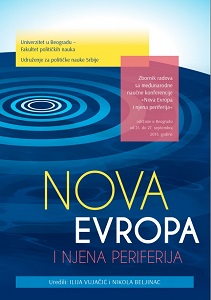
We kindly inform you that, as long as the subject affiliation of our 300.000+ articles is in progress, you might get unsufficient or no results on your third level or second level search. In this case, please broaden your search criteria.

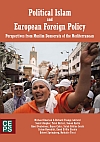
The social, political and even economic power of moderate Middle East Islamists has been growing for a generation or so, but the phenomenon was not given the attention it deserved by outside observers and policy-makers until the impressive recent electoral performances by Arab Islamists in Palestine, Lebanon, Egypt, Morocco and, most recently, Bahrain. Earlier accomplishments at the polls by the Islamic Action Front in Jordan in 1989 and the Justice and Development Party (AKP) in Turkey in 2002, although signalling the importance of political Islam, did not establish its status as the pre-eminent oppositional political force in the region. Now that status cannot be disputed. As a result, the question of how to deal with Islamists who reject violence, embrace democracy and outperform their competitors at the polls has become a central concern not only of incumbent Middle East elites, but of interested foreign actors as well.
More...
Annex A: Check-list of topics and questions for interviews Annex B: Questionnaire submitted to the Muslim Brothers and Wasat party (in Arabic) Literature References
More...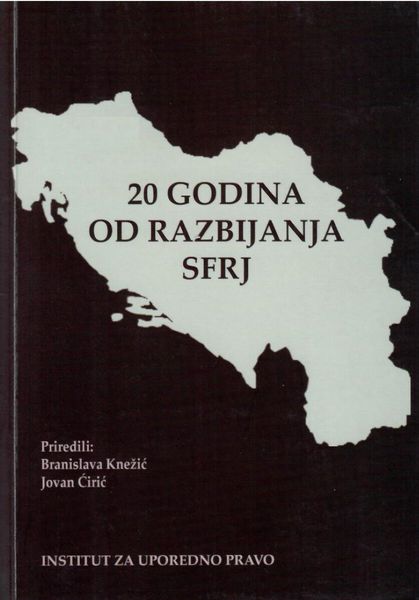
The war is a crime, itself. According to some authors, have been around 1400 wars, until now. Only members of human race lead wars. Instead eating members of their species, they are killing them. Analyzing empirical nature of the war , i found that we are talking about civil war. This meaning is proved by long term consequences of war of blood and soil, burned country, the destruction of old cemeteries. The war has been built by the ethnic cleansing which shows the tribal reasoning.
More...
In this article, the author presents the state and features of the sports systems in states arised from the former Federal Republic of Yugoslavia and explains the concequences that disappearance of the federal state, the civil war and creation of the small national states caused to its sports development and sports results achieved during the past twenty years. Besides, the paper summarizes the main problems of national sports systems and sorts leagues of above mentioned states and criticize their great expectations from the future process of ownership transformation of sport organizations. It is noted that a colloquial term ’’privatization in sport’’, commonly used in professional and political debates in those countries, does not conform to the essence of the process it refers to in such debates. The concluding part of the paper comprises allegations that during the past twenty years, newly established national states arised from the former Federal Republic of Yugoslavia were not very successful in the development of their sports systems. Those allegations have been proved by listing of various facts and examples presenting the results achieved by the national sports teams of that states.
More...
Ky studim është i fundit i një serie prej tetë studimesh, për ndihmën perëndimore ndaj qeverive vendore në vendet e Evropës Qendrore dhe Lindore (EQL), gjatë procesit të tranzicionit. Qëllimi i studimit është të nxjerrë konkluzione dhe të japë rekomandime mbi bazën e hulumtimeve të mëparshme. Kërkimi filloi nga kurioziteti. Vendet perëndimore kanë dhënë rreth 40 miliardë US $ për asistencë teknike, për vendet EQL midis viteve 1990 (pas rënies së murit të Berlinit) dhe 2004 (vit në të cilin 10 vende të EQL, u bënë anëtarë të BE-së), dhe nga komentet e shumta të përfituesve në nivel lokal rezultoi, që një pjesë e mirë e kësaj ndihme, nuk e ka përmbushur qëllimin e saj.
More...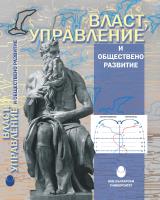
The report examines specific forms of power metamorphoses for self-preservation or serving political and corporate interests. They are called masks , because they represent some qualities of the rulers, but others are hiding behind them. Thus, through external representation, practically non-adversary parties are masked by the way power is applied. The definition of ten masks in the report is only part of the aspirations of the power to win supporters or to peruse politics in one's interests through external ostentation. With careful observation and analysis of the behavior of the authorities, it is certainly to show and show even few masks. But identifying power with masks is at least insensitive, but it also shows that it can resort to masks is necessary. The least that can be achieved in society is to avoid suggestions of masks if they know each other.
More...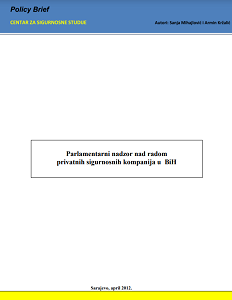
U demokratski uređenim državama, javnost, demokratski izabrane institucije i parlamenti države imaju potrebu za adekvatnim i djelotvornim mehanizmima vršenja nadzora i demokratske kontrole, ne samo nad njihovim sigurnosnim strukturama na razini države, nego i nad privatnim vojnim i sigurnosnim snagama. Zbog sve većeg značaja širenja aktera privatnih sigurnosnih kompanija, postaje značajno da demokratske institucije, a posebno parlament, osiguraju minimalne standarde nadzora i kontrole nad istim u sektoru sigurnosti. U suprotnom, izostajanje ovih elemenata dovodi u opasnost i osnovne demokratske principe. U nastojanju da osigura ravnotežu vlasti, Bosna i Hercegovina je usvojila koncept parlamentarnog nadzora i uspostavila mehanizme demokratske kontrole u izvršnim i zakonodavnim tijelima vlasti. Ovaj koncept se primjenjuje na sve institucije vlasti a u ovom slučaju se odnosi i na instance kršenja ljudskih prava, kao i vladavine prava. Međutim, kada se sagleda praksa demokratskog nadzora nad nedržavnim akterima, kao što su privatne sigurnosne kompanije, u BiH i u svijetu, postaje uočiljivo da su ove prakse svedene na minimalan nivo. Štaviše, pristupi međunarodne zajednice ka ovome problemu su, u najboljem slučaju, djelimični. Stoga, mnogobrojna istraživanja upućuju na problem ove rastuće industrije, prvenstveno kroz prizmu međunarodnog humanitarnog zakona i međunarodnog zakona o ljudskim pravima, a ne kroz prizmu sveobuhvatne demokratske odgovornosti.
More...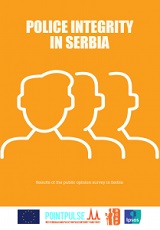
Bad economic situation is the main problem of Serbian citizens. When they are not preoccupied by this difficult, they are concerned with corruption, which is, for the majority of the citizens, a normal occurrence in Serbian society. Citizens say that corruption is everywhere, also inside the police, the institution which issupposed to lead the fight against corruption together with the Prosecutor’s office. Only four percent of the citizens believe that there is no corruption within the police. For more than two thirds of citizens, corruption within the police is widespread. Based on previously conducted public opinion surveys, the police is always amongst top five most corrupted institutions. This is also the case now, and police is accompanied by Health, Customs, Judiciary and Commercial Inspection. Traffic police, border police and the part of the police fighting of economic crime, are considered to be the parts of police where corruption is mostly widespread. The most corrupted within the police are those employed on the high positions, as well as police officers which have daily contact with the citizens. Four percent of the citizens state they have participated in bribery with the police representatives. Even when the socially desirable answers and the fear of admitting such deeds are taken into account, the difference between the perception of corruption and the experience with corruption is great. Citizens believe that the corruption level in Serbia has remained the same in the past year. Besides that, the fight against corruption is personalized, and institutions’ contribution is very small. Every fifth citizen believes that the Serbian Prime Minister contributed the most to fight against corruption. Nevertheless, Serbian citizens do not have a clear idea about to whom they should report corruption, as well as which is the institution in charge for the fight against the corruption within police force. At the end, citizens believe that the civil society and the European Union have their own part in the fight against corruption. Civil society organizations are perceived as direct participants in the fight against corruption, independently or in cooperation with the state, and the European Union primarily through financial support.
More...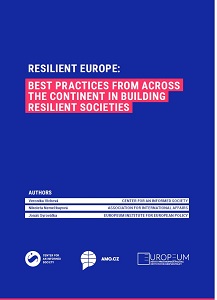
The "Resilient Europe" conference held in Prague in October 2024 gathered leading experts, policymakers, and stakeholders from across Europe to share insights, best practices, and challenges faced in countering these threats. This policy paper distills the core insights from the conference under three primary categories: hybrid threats, information manipulation in the digital space, and strategic communication. These categories encompass a broad range of actions taken by European nations and institutions to safeguard democratic resilience, and this paper further identifies the most pressing challenges and opportunities for future efforts.
More...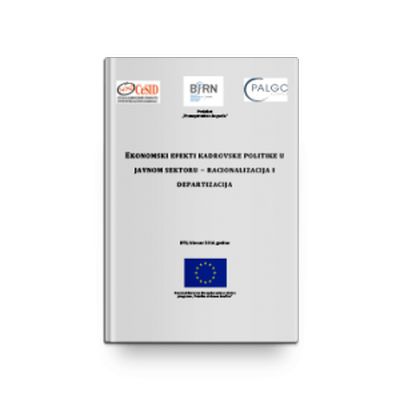
The Democratic Transition Initiative (DTI) is a civil society organization that promotes the principles of local economic development, sustainable civil society, human/minority rights, and the fight against xenophobia. The organization was founded in 2002, following the footsteps of the USAID/OTI program of the same name. It took advantage of the moment of general consolidation of the network of non-governmental and media organizations. It also improved cooperation between these civil society organizations and institutions at the local, regional, and national levels.
More...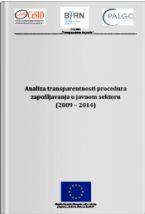
The analysis of the transparency of public sector recruitment procedures (2009-2014) was prepared within the framework of the project "Towards Transparency in Staff Recruitment", which is implemented with the support of the European Union by the Center for Free Elections and Democracy (CeSID), the Balkan Investigative Reporting Network (BIRN Serbia) and the PALGO Center (Belgrade).
More...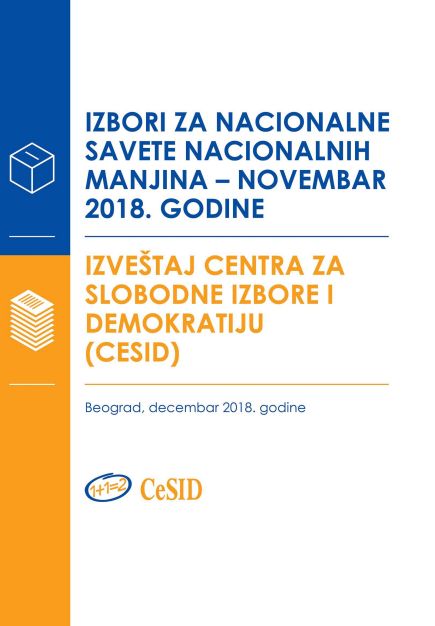
The report before you aims to provide an objective and unbiased insight into the most important findings reached by the Center for Free Elections and Democracy during the conduct of elections for members of national councils of national minorities, held on November 4 and 14, 2018.
More...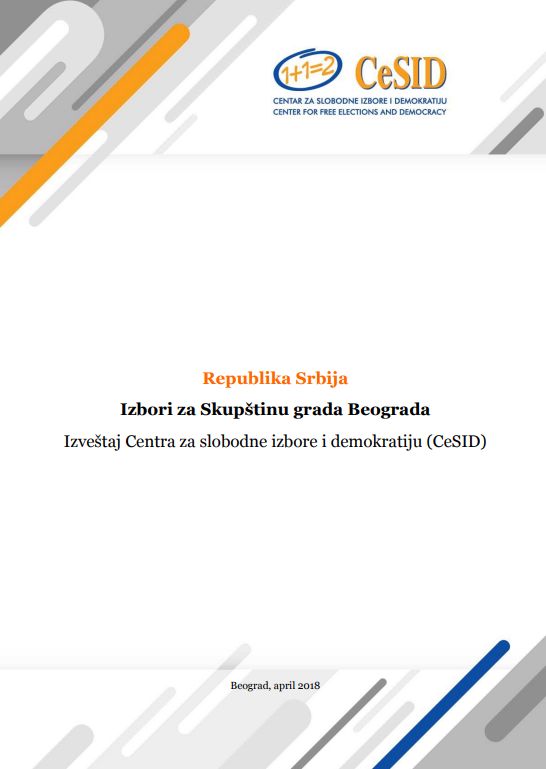
The report in front of you aims to provide a detailed, neutral and unbiased insight into the most important findings reached by CeSID while observing the elections for the Belgrade City Assembly in 2018. The report is structured to include all the most important segments of the election: the political background and legal framework of the election, the work of the election administration, campaign analysis and election day observation.
More...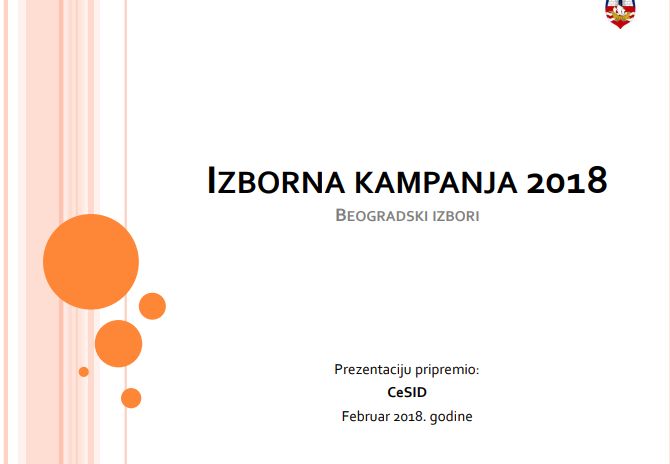
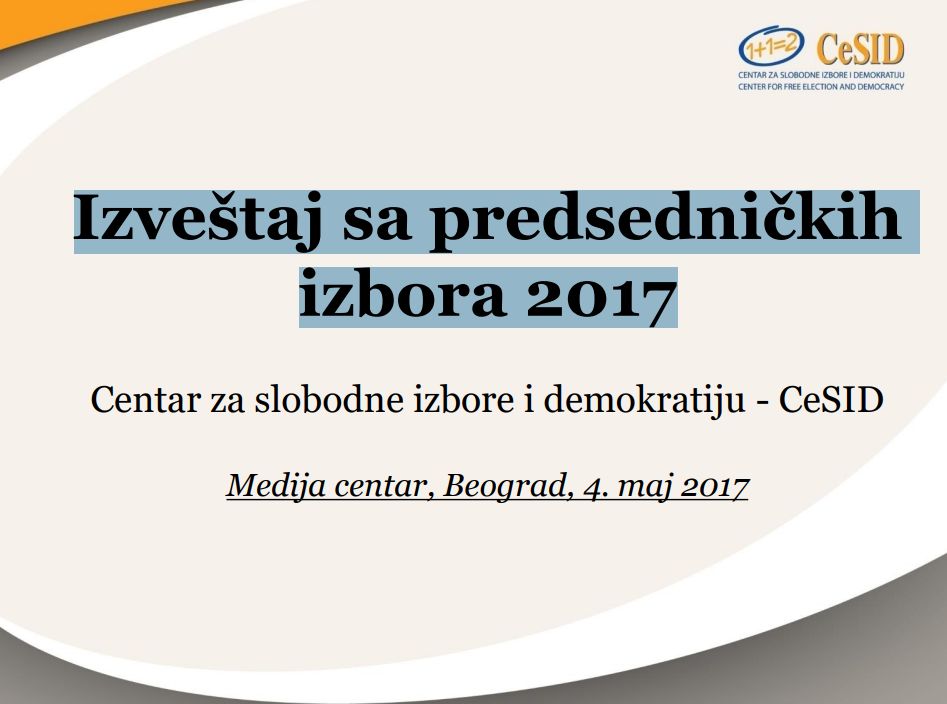
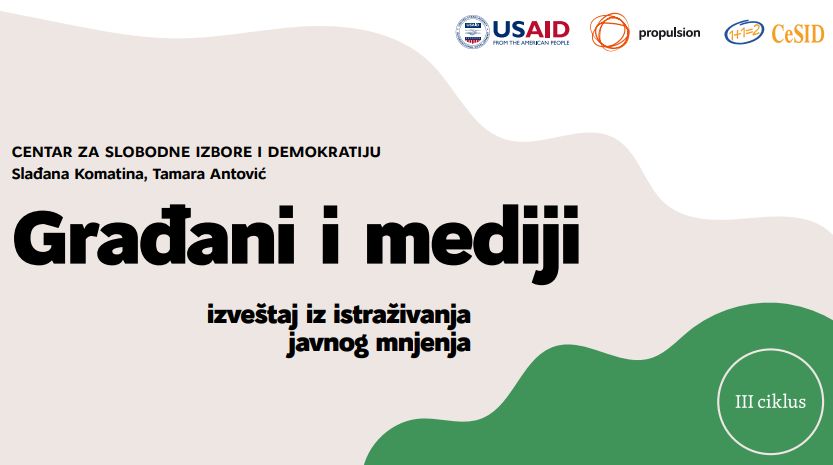
Digital Literacy Index. Media Literacy Index. Use of social networks. Communication applications. Influencers as media
More...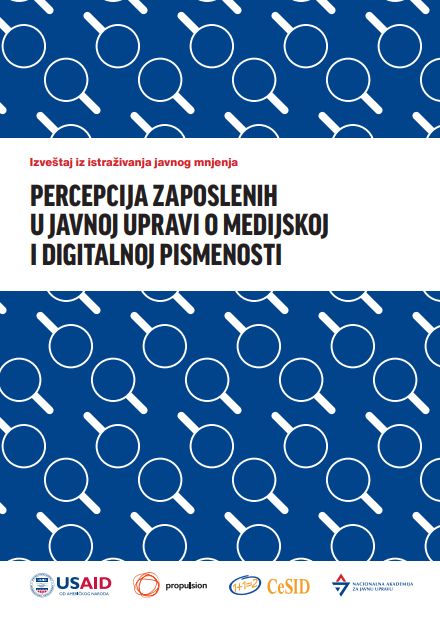
The Center for Free Elections and Democracy (CeSID) and the National Academy for Public Administration conducted a survey of public administration employees' perception of media and digital literacy in the period between April 28 and May 14, 2021, in the territory of the Republic of Serbia without Kosovo and Metohija. The survey was carried out as part of the "Initiative for New Media and Digital Literacy" conducted by Propulsion in partnership with the US Agency for International Development (USAID).
More...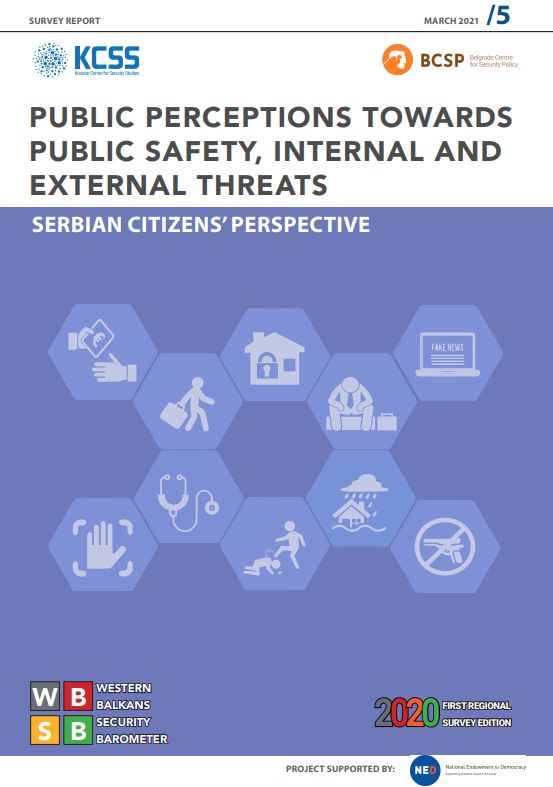
The main finding of this study is that the Serbian public has conflicting views on national and personal security including security at the community level. On the one hand, people instinctively recognize that the main security threats are internal and related to poor governance – such as organized crime and corruption and the low level of trust in the government that serves the interests of politicians. Consequently, the list of the main internal security threats Serbia faces is topped by organized crime, emigration, unemployment, and corruption. On the other hand, the public believe that the country is mostly under external threats from migrants, great powers, and Kosovo-Albanians, which is probably a product of sensationalized media coverage and messaging by politicians.
More...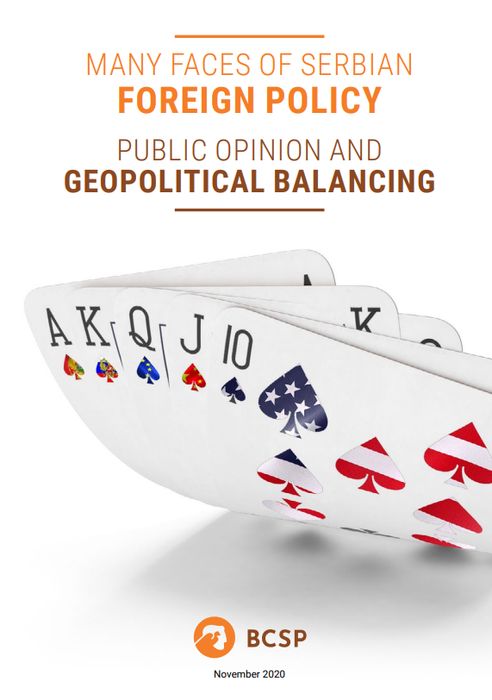
According to a public opinion survey Serbian citizens identify Russia and China as their greatest friends. As the country's most important foreign policy priorities, citizens recognize preserving Kosovo as part of Serbia, strengthening cooperation with neighboring countries and strengthening cooperation with Russia. More than half of the citizens do not support Serbia's membership in the EU.Most respondents (40%) perceive Russia as Serbia’s best friend, and 72% believe that Russia’s influence in the country is positive, which is an increase of 11% compared to the results of the survey from 2017. Only two percent of people believe that Russia’s attitude towards Serbia is hostile. After Russia, second place on the list of friends is reserved for China (16 percent of respondents). The growth of positive attitudes towards China is especially visible after the beginning of the pandemic, which is proved by the fact that 75% of respondents believe that China provided the most assistance to Serbia in the fight against the pandemic, although there are no official data on the amount of Chinese aid. According to available data, the largest donor was the European Union (EU), and only 3% of Serbian citizens recognize that. In addition, almost 90% of respondents believe that the Chinese influence in the country is positive, which is an increase of over 30 percent compared to the survey from 2017.
More...